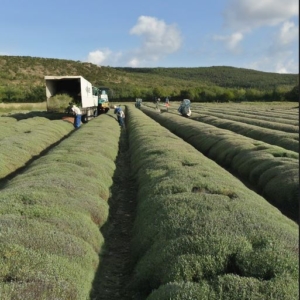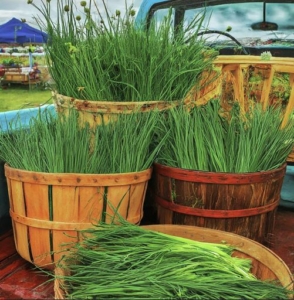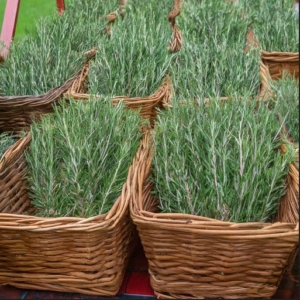Herb Export to Europe: Comprehensive Guide – 11 Tips for Importers
When it comes to herb export to Europe, selecting a supplier for herbs requires businesses that rely on herb export to Europe in Europe to carefully consider the advancements in market development and expansion to ensure they partner with a forward-thinking exporter. Whether in the UK, Germany, Belgium, Netherlands, France, other EU nations, and non-EU nations, Mulberry Growers presents a comprehensive guide on how to get the right suppliers and partners in the business of herb export to Europe.
Technology and Innovation in Herb Importation or Herb Export to Europe
To enhance visibility and control over herb shipments, consider suppliers who implement advanced tracking systems. These technologies provide real-time updates on the location and status of your shipments, minimizing risks of delays or losses. For instance, suppliers in cities like Berlin, Paris, and Amsterdam are increasingly adopting GPS and RFID tracking, which can help streamline operations and ensure timely deliveries. Such systems not only improve operational efficiency but also offer greater transparency throughout the supply chain, which is crucial for businesses that rely on herb export to Europe looking to maintain a high level of customer satisfaction.

Leveraging data analytics can significantly optimize your supply chain operations and market strategies. By analyzing historical data, suppliers in cities such as London, Brussels, and Munich can forecast demand more accurately, manage inventory levels efficiently, and identify market trends. This approach allows businesses that rely on herb export to Europe to make informed decisions, reduce waste, and tailor their offerings to meet consumer preferences more effectively. Data-driven insights also facilitate strategic planning and enhance competitive advantage in the herb importation or herb export to Europe market.
Innovative Practices:
Explore suppliers who utilize cutting-edge packaging technologies to improve herb preservation and extend shelf life. Innovations such as vacuum-sealing and oxygen-absorbing materials help maintain the freshness and potency of herbs during transit and storage. Suppliers from regions like Rotterdam, Lyon, and Frankfurt are at the forefront of adopting these technologies. Enhanced packaging not only ensures the quality of the herbs but also contributes to sustainability by reducing waste and improving the overall customer experience.
Adopting innovative processing techniques can elevate the quality of herbs. Suppliers who implement advanced methods like freeze-drying and supercritical CO2 extraction ensure that herbs retain their essential oils and nutrients. Cities such as Antwerp, Munich, and Paris are known for their commitment to processing innovations, which enhance the flavor, potency, and efficacy of the herbs. By selecting suppliers who embrace these techniques, businesses that rely on herb export to Europe can offer superior products and gain a competitive edge in the herb market.
Competitive Analysis of Herb Suppliers
Identifying the factors that give competitors a competitive edge in the herb market is crucial. Look for suppliers who have established a strong market presence through unique selling propositions such as exclusive herb varieties or superior quality standards. For instance, suppliers in cities like London, Berlin, and Brussels often differentiate themselves through their sourcing practices or product certifications. Understanding these factors can help you choose a supplier that not only meets your needs but also stands out in a competitive landscape.
Analyzing the strategic initiatives of leading herb suppliers provides insights into successful market approaches. Leading suppliers often invest in sustainability, innovation, and customer engagement to enhance their market position. For example, suppliers in Paris, Amsterdam, and Antwerp may focus on eco-friendly practices or advanced product development to stay ahead. By examining these initiatives, you can align with suppliers who are strategically positioned for long-term success and can offer added value to your business.
Benchmarking:
In herb export to Europe, benchmarking performance metrics against leading suppliers is essential for assessing potential partners. At Mulberry Growers, we offer the key metrics to consider as delivery reliability, product quality, and customer service. Suppliers in cities such as Frankfurt, Brussels, and London may have established benchmarks for these metrics. Evaluating how potential suppliers perform relative to industry leaders ensures that you select a partner who meets high standards and can consistently deliver quality herbs.
Adopting best practices from successful competitors can enhance your supplier selection process is also critical in herb export to Europe. This includes learning from industry leaders’ approaches to quality control, supply chain management, and customer relations. Suppliers in cities like Amsterdam, Paris, and Berlin often implement best practices that can serve as benchmarks for your own operations. By integrating these practices into your supplier evaluation criteria, you can improve your procurement strategy and ensure a successful partnership with your chosen herb suppliers.

Product Lifecycle Management
Successfully launching new herb products in the European market requires a strategic approach. Begin by conducting thorough market research to identify consumer needs and preferences in key cities like London, Berlin, and Paris when dealing with herb export to Europe. Develop a marketing plan that highlights the unique benefits of the new product, tailored to regional tastes and trends. This includes creating compelling product packaging, crafting targeted advertising campaigns, and establishing partnerships with local distributors. Additionally, leveraging digital platforms and social media to generate buzz and engage with potential customers before the launch can create anticipation and drive initial sales. A well-coordinated launch strategy ensures a strong market entry and sets the stage for long-term success.
Lifecycle Monitoring
Effective lifecycle monitoring is essential for managing herb products throughout their market presence. Implementing techniques such as sales tracking, customer feedback analysis, and performance metrics allows businesses that rely on herb export to Europe to evaluate how products are performing in cities like Amsterdam, Milan, and Vienna. Regularly review product data to identify trends, such as changes in consumer preferences or seasonal variations, and adjust marketing and inventory strategies accordingly during phases of herb export to Europe. Utilizing advanced analytics and reporting tools can help businesses that rely on herb export to Europe make informed decisions about product improvements or phase-outs. Monitoring the lifecycle ensures that products remain competitive and relevant, optimizing their success in the European market.
End-of-Life Management
Managing products nearing the end of their lifecycle involves strategic planning to minimize waste and maximize value. For herb products in Europe, businesses that rely on herb export to Europe should consider options such as discounting remaining stock, repurposing or reformulating products, or donating unsold goods to charitable organizations. Additionally, phase-out strategies should include clear communication with distributors and customers about product discontinuation. Implementing a structured end-of-life plan helps ensure a smooth transition, reduces the impact on inventory levels, and maintains customer satisfaction. Properly managing end-of-life stages allows businesses that rely on herb export to Europe to focus resources on new product development and market opportunities.
Supply Chain Transparency
Traceability Systems
Implementing traceability systems is crucial for tracking herbs from their origin to the end consumer in the European market. These systems involve recording and monitoring every stage of the herb’s journey, from farm to table, ensuring transparency and accountability. Technologies such as barcoding, RFID tags, and GPS tracking can help businesses that rely on herb export to Europe in cities like Paris, Berlin, and Milan verify the provenance and quality of their products. Effective traceability systems enable businesses that rely on herb export to Europe to quickly address any issues related to quality or safety, enhance consumer trust, and comply with regulatory requirements, ultimately supporting a more transparent and reliable supply chain.
Consumer Transparency
Enhancing consumer trust through transparent practices and clear labeling is essential for businesses that rely on herb export to Europe in Europe. Providing detailed information about the origin, quality, and production processes of herbs helps build credibility with consumers. Clear labeling should include data on sourcing, ingredient lists, and certifications such as organic or fair trade. In cities like Amsterdam, Barcelona, and Vienna, where consumer expectations for transparency are high, businesses that rely on herb export to Europe must ensure that their product information is accurate and readily accessible. By adopting transparent practices, companies can foster trust, differentiate themselves in the marketplace, and meet growing consumer demand for ethical and well-sourced products.
Blockchain Technology
Exploring blockchain technology can significantly improve supply chain transparency for herb businesses that rely on herb export to Europe. Blockchain offers a decentralized and immutable ledger system that records every transaction in the supply chain, from production to distribution. In European cities like London, Paris, and Berlin, adopting blockchain technology enables businesses that rely on herb export to Europe to provide verifiable and tamper-proof records of their herbs’ journey. This technology enhances traceability, reduces the risk of fraud, and builds consumer confidence by offering a transparent view of the product’s lifecycle. Implementing blockchain solutions can also streamline compliance with regulatory requirements and support more efficient and trustworthy supply chain management.
Exporter Relationships and Negotiations
Supplier Relations
Building Partnerships: Establishing robust relationships with herb exporters like Mulberry Growers is also crucial for ensuring a reliable and consistent supply chain. By focusing on creating long-term partnerships, businesses that rely on herb export to Europe in Europe, whether they are sourcing herbs from the UK, such as London, Birmingham, or Manchester, or from cities in Germany like Berlin, Hamburg, and Munich, can benefit from improved communication and trust. Such relationships often lead to better pricing, priority during high-demand periods, and personalized service, which can enhance the overall efficiency and reliability of your supply chain.
Negotiation Tactics: Effective negotiation tactics are essential for securing favorable terms when dealing with herb exporters. Employ strategies such as leveraging bulk purchasing to negotiate better rates or exploring multi-year agreements to lock in competitive prices. For businesses that rely on herb export to Europe sourcing from various regions like the Netherlands (Amsterdam, Rotterdam) or Belgium (Brussels, Antwerp), it’s beneficial to understand local market dynamics and customs. Tailoring your negotiation approach to the specific exporter’s business practices and economic conditions can lead to mutually beneficial agreements that support long-term success.
Contract Management
Contract Clauses: Including key clauses in contracts with herb exporters is vital to protect your interests and ensure product quality. Essential clauses might include detailed specifications on herb quality, delivery schedules, and compliance with health regulations. Additionally, consider including clauses on penalties for non-compliance and terms for regular quality audits. For businesses that rely on herb export to Europe importing from France, Germany, or the Netherlands, such as from Paris, Berlin, or Amsterdam, these clauses help in maintaining clear expectations and can serve as a basis for resolving issues should they arise.
Dispute Resolution: Developing effective mechanisms for resolving disputes with herb exporters is critical for maintaining smooth operations. Contracts should outline clear procedures for addressing conflicts, such as mediation or arbitration, to ensure swift and fair resolutions. Establishing these processes in advance helps prevent prolonged disputes that could disrupt the supply chain. When working with exporters in major European cities like London, Paris, or Brussels, having a well-defined dispute resolution strategy can safeguard against potential challenges and foster a more cooperative business relationship.
Environmental Considerations in Herb Importation or herb export to Europe
Sustainable Practices
Eco-Friendly Sourcing: Sourcing herbs from environmentally responsible sources is increasingly important for businesses that rely on herb export to Europe committed to sustainability. Prioritize suppliers who use eco-friendly farming practices and offer certifications such as organic or fair trade. In Europe, sourcing from regions like the UK’s Scotland, France’s Provence, or Germany’s Baden-Württemberg ensures that your herbs are grown with minimal environmental impact. Implementing eco-friendly sourcing not only aligns with global sustainability trends but also appeals to environmentally-conscious consumers.

Packaging Waste Reduction: Reducing packaging waste through sustainable practices is a key consideration in herb importation or herb export to Europe. Opt for suppliers who use recyclable or biodegradable packaging materials and work towards minimizing packaging size. By focusing on suppliers that emphasize packaging waste reduction, businesses that rely on herb export to Europe can contribute to environmental conservation and potentially reduce overall costs. This approach is applicable to various regions, including the Netherlands (Rotterdam) and Belgium (Antwerp), where businesses that rely on herb export to Europe are increasingly prioritizing sustainability in their supply chain practices.
Regulatory Compliance
Environmental Regulations: Adhering to environmental regulations is crucial in herb importation or herb export to Europe to ensure compliance with European standards. Regulations may vary by country, but all focus on reducing environmental impact and ensuring sustainable practices. For example, importing herbs from France or Germany requires compliance with EU regulations concerning pesticide use and organic certification. Staying updated on these regulations helps avoid legal complications and supports responsible sourcing practices, thereby enhancing your company’s reputation and operational efficiency.
Certification Requirements: Obtaining certifications for environmental compliance is an important step in the herb importation or herb export to Europe process. Certifications such as EU Organic, Fair Trade, or Rainforest Alliance demonstrate a commitment to environmental and ethical standards. For businesses that rely on herb export to Europe operating in Europe and sourcing from various countries, such as the UK, France, or Germany, these certifications not only ensure compliance with environmental laws but also enhance the credibility and marketability of your products. Ensuring that your suppliers hold relevant certifications can provide assurance of their adherence to high environmental standards.
Market Development and Expansion
Growth Opportunities
Exploring growth opportunities is crucial when selecting a supplier. Look for exporters who are adept at identifying new market segments for their herb offerings. For instance, a supplier with a strong presence in London, Paris, and Berlin might demonstrate their ability to tap into emerging trends across these major cities. Additionally, assessing their approach to geographic expansion within the Europe, such as into burgeoning markets in London or Brussels, can reveal their capacity for scaling operations and meeting your evolving demands. Understanding these elements can help ensure that the supplier aligns with your business’s growth objectives.
Strategic Planning
Effective strategic planning is vital for successful market development. Evaluate a supplier’s market entry strategies to ensure they are well-prepared to enter and compete in new markets. For example, a supplier expanding from Antwerp to new regions like Cologne or Lyon should have a clear plan for addressing local market conditions and regulations. Additionally, consider their long-term goals for market development. A supplier with robust plans for growth in key European regions, such as Amsterdam or Cologne, demonstrates a commitment to sustaining and enhancing their market position, which is essential for long-term business success.
Customer Feedback and Quality Improvement
Feedback Mechanisms
Understanding how a supplier handles customer feedback is essential for ensuring product quality and satisfaction. Suppliers who actively use customer surveys to gather insights on their herb products and services demonstrate a commitment to addressing client needs. For example, a supplier servicing markets in cities like London, Paris, and Berlin should regularly conduct these surveys to refine their offerings. Additionally, focus groups can provide deeper insights into customer preferences. A supplier that organizes focus groups in key regions such as Amsterdam or Brussels shows an ability to adapt to specific market demands, enhancing their service and product quality.
Continuous Improvement
A supplier’s approach to continuous improvement based on customer feedback is critical for maintaining high standards. Suppliers who implement quality enhancement processes by integrating customer feedback into their operations demonstrate a proactive approach to excellence. For instance, a supplier catering to major European cities like Cologne or Lyon should have systems in place for ongoing product evaluation and enhancement. Furthermore, leveraging feedback for product development and innovation indicates a supplier’s dedication to evolving their offerings to meet market needs. A supplier’s commitment to these processes ensures that your business receives top-quality products aligned with customer expectations.
Crisis Management
Handling Supply Disruptions
Managing supply disruptions effectively is crucial for businesses that rely on herb export to Europe in Europe, where various factors such as geopolitical tensions, natural disasters, or transport strikes can impact the herb supply chain. Companies operating in major cities like Berlin, Paris, and Milan should develop strategies that include diversifying suppliers across multiple countries to avoid dependency on a single source. Additionally, creating safety stock levels and establishing relationships with alternative logistics providers can help mitigate the impact of disruptions. Proactive communication with customers and stakeholders about potential delays or changes is also essential to maintain trust and manage expectations during supply chain issues.
Reputation Management
In times of crisis, maintaining a positive brand reputation is critical for businesses that rely on herb export to Europe in Europe. For herb importers in cities like Amsterdam, Barcelona, and Vienna, managing reputation involves transparent and timely communication about the crisis, its impact, and the steps being taken to address it. Companies should use various channels, including social media, press releases, and direct customer outreach, to provide updates and reassure stakeholders. Addressing customer concerns empathetically and demonstrating commitment to resolving the issue can help preserve brand loyalty and minimize negative impacts on the company’s image during challenging times.
Emergency Response Plans
Developing effective emergency response plans is essential for handling unexpected events that could disrupt herb businesses that rely on herb export to Europe in Europe. These plans should cover a range of potential scenarios, including natural disasters, supply chain failures, or health crises. For businesses that rely on herb export to Europe in cities like London, Paris, and Berlin, this involves establishing clear protocols for employee safety, securing facilities, and ensuring business continuity. Regularly updating and testing the emergency response plan helps ensure preparedness and resilience. Components of the plan might include evacuation procedures, communication strategies, and coordination with local authorities to swiftly address any immediate threats to operations.
Digital Transformation
Adopting E-Commerce Solutions
Integrating e-commerce solutions into the herb business is increasingly important for reaching a wider audience and enhancing sales efficiency in Europe. In key markets such as London, Paris, and Milan, businesses that rely on herb export to Europe can benefit from setting up robust online platforms or partnering with established e-commerce sites. These solutions facilitate a seamless customer experience from browsing and purchasing to delivery. Additionally, e-commerce platforms offer valuable data insights into consumer behavior and preferences, enabling businesses that rely on herb export to Europe to tailor their products and marketing strategies more effectively to meet the needs of their European customer base.
Leveraging Data Analytics
Utilizing data analytics for informed decision-making is a powerful tool for businesses that rely on herb export to Europe in Europe’s herb industry. By analyzing data from sales, customer feedback, and market trends, companies in cities like Amsterdam, Barcelona, and Vienna can gain insights into consumer preferences and operational efficiencies. Data analytics can aid in optimizing inventory management, forecasting demand, and tailoring marketing strategies. Leveraging these insights helps businesses that rely on herb export to Europe adapt to changing market conditions, improve customer satisfaction, and enhance overall performance, positioning them competitively in the European herb market.
Automating Operations
Implementing automation technologies can greatly enhance efficiency in herb production and distribution across Europe. Automation solutions such as robotic packaging systems, inventory management software, and automated order processing can streamline operations and reduce manual errors. For businesses that rely on herb export to Europe in cities like London, Paris, and Berlin, embracing automation leads to faster production cycles, accurate order fulfillment, and consistent product quality. Additionally, automation can improve operational scalability and adaptability, helping businesses that rely on herb export to Europe meet growing demands and stay ahead of industry trends while ensuring high standards in herb delivery and processing.
Contact Us – We do Herb Export to Europe

We will supply your business with basil, rosemary, thyme, sage, oregano, chives, or tarragon herbs in large volumes or any specified quantities in bulk.
To provide your instructions and inquiries, start here:
- Our Email: commercial@mulberrygrowers.com
- Call/WhatsApp: +254 716 150 111 OR +254 748 897 749
- Website: www.mulberrygrowers.com